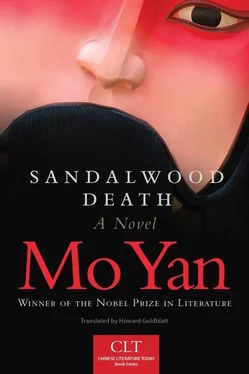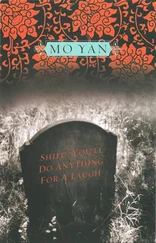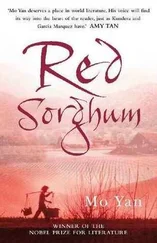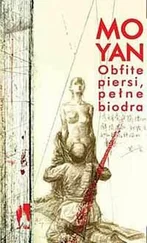“The vocation of bereavement singing died with the Patriarch, but his melodic, heartbreaking elegies never stopped swirling in the hearts of our people.”
“Later, during the nineteenth-century reigns of the Jiaqing and Daoguang emperors, small family troupes mimicked the vocal offerings of the Patriarch in performances, usually consisting of a male singer, echoed by his wife, and complemented by their child, dressed in a cat costume, who supplied the feline cries. When the opportunity arose, they sang funeral elegies for rich families—by then, ‘bereavement laments’ had become ‘bereavement songs’—but most of the time they put on public performances at open markets. Husband and wife sang and acted out their parts while their child moved cat-like, making a variety of feline sounds as he circled the crowd with his donations basket. Short performances were the order of the day, including such favorites as Lan Shuilian Sells Water, A Widow Weeps at a Gravesite , and Third Sister Wang Misses Her Husband . In reality, these performances were a form of begging. Maoqiang actors are cousins to professional beggars, and that is how you became my protégé.”
“Shifu speaks the truth,” Xiao Shanzi said.
“That was how things stood for several generations. Musical instruments were not used in the Maoqiang of those days, and there was no staging. It was operatic but not yet opera. Besides the small family troupes I spoke of a moment ago, there were peasants who made up musical interludes during leisure periods, accompanied by gongs used for peddling candy and clappers used by bean curd peddlers, singing them for themselves in cellars where straw sandals were made or on heated brick beds in their own homes, all to dispel loneliness and ease a life of suffering. Those gongs and clappers were the forerunners of today’s Maoqiang instruments.
“I was young and clever back then—I’m not boasting—and I had the finest voice in all of Northeast Gaomi Township’s eighteen villages. I began to gain a reputation when I joined my voice with others. People—locals at first, then outsiders—came to listen, and when the cellars and brick beds could no longer accommodate them all, we moved into yards and onto threshing grounds. People could be seated when they sang in those cellars and on brick beds, but not in open spaces, where movement was required. But then movement in ordinary clothing did not feel natural, so costumes were required. But then costumes and unadorned faces did not produce the right effect, so singers painted their faces. Costumes and painted faces needed something more—instruments more varied than gongs and clappers. Ragtag troupes from other counties gave performances in town, including the “Donkey Opera” specialists from Southern Shandong, who rode their animals onto the stage. There were also the southern Jiao County “Gliders,” whose ending note of each sentence glided from high to low, like sledding down a mountain slope. Actors in one so-called “rooster troupe” from the Henan-Shandong border area ended each line with a sort of hiccup, the sound a rooster makes at the end of its crow. All these troupes came with instrumental accompaniment, for the most part huqin, dizi, suonas, and laba—fiddles, flutes, woodwinds, and horns. The visitors played their instruments at our performances, and the effects were more impressive than those with singing alone. But I am so competitive, I’ve never been satisfied with someone else’s brainchild. By this time our opera was already known as Maoqiang, and I was thinking that if I wanted to create a unique opera form, it had to be all about cats. And so I invented an instrument called the mao hu—the cat fiddle. With that instrument, Maoqiang had found its place.
“My instrument was bigger than other fiddles; it had four strings and a double bow, which produced fascinating compound notes. Their fiddles were snakeskin-covered; for ours we used tanned cat skins. Their fiddles were good for ordinary tones, while ours could produce cat cries dog yelps donkey brays horse whinnies baby bawls maiden giggles rooster crows hen cackles—there wasn’t a sound on earth that our fiddles could not reproduce. The cat fiddle put Maoqiang opera on the map, and ragtag troupes found no place in Northeast Gaomi Township after that.
“I followed my invention of the cat fiddle with another—the cat drum, a small drum made of cat skin. I also came up with a dozen facial designs: happy cats, angry cats, treacherous cats, loyal cats, affectionate cats, resentful cats, hateful cats, unsightly cats… would it be an exaggeration to say that without Sun Bing, today there would be no Maoqiang opera?”
“Again Shifu speaks the truth,” Xiao Shanzi said.
“Of course I am not the opera’s Patriarch. That was Chang Mao. If Maoqiang were a tree, then Chang Mao would be our roots.”
“Worthy young brother, which operas did I teach you to sing all those years ago?”
“ The Hongmen Banquet , Shifu,” Xiao Shanzi replied softly, “and In Pursuit of Han Xin .”
“Ah, those, both stolen—by me—from other operas. You probably are unaware that Shifu played bit roles with at least ten opera troupes in other counties in order to poach bits of their performances. My desire to learn opera took me down south, out of Shanxi, across the Yangtze, and into Guangxi and Guangdong. There isn’t an opera anywhere that Shifu cannot perform, and no role that Shifu cannot act. Like a bumblebee, I have taken nectar from all the operatic flowers to create the fine honey of Maoqiang opera.”
“Shifu, you are a miraculous talent!”
“Your shifu once had a grand desire to take Maoqiang opera to Peking at least one time before he died and perform for the Emperor and the Empress Dowager. I wanted it to become a national dramatic form. Once that happened, rats would disappear from the land north and south of the great river. What a shame that before I could put this grand plan into action, a treacherous individual yanked the beard right off my face. That beard was the symbol of Shifu’s prestige, my courage, my talent, the very soul of Maoqiang. Shifu without a beard is like a cat without whiskers like a rooster without tail feathers like a horse with a shorn tail… worthy young brother, Shifu had no choice but to leave the stage and drift through life as the owner of a little teahouse, fated to die with unfulfilled aspirations, something that has bedeviled heroic figures since time immemorial.”
At this point in my narration, I noted that the Gaomi County Magistrate was shuddering, and that Xiao Shanzi’s eyes were filled with tears.
“My young protégé, the featured opera in our repertoire is Chang Mao Weeps for a Departed Spirit , my first major creation. It has always been the first performed for each new season. If it is well done, the success of our run that season is ensured; if not, there are bound to be problems down the line. You’ve lived your life in Northeast Gaomi Township. How many times have you seen Chang Mao Weeps for a Departed Spirit ?”
“I’m not sure, but it must be dozens of times.”
“Has it ever been the same twice, in your view?”
“No, Shifu, I always came away with something new,” Xiao Shanzi said dreamily, his thoughts going back in time. “I still remember the first time I saw Chang Mao Weeps for a Departed Spirit . I was just a boy then and wore a cat-skin cap. You played the role of Chang Mao, and when you sang, sparrows dropped out of the trees. But what impressed me most was not your songs. No, it was the big boy who played the role of the cat. He filled the air with cat cries, no two alike, and long before the opera was finished, everyone at the foot of the stage went crazy. We boys ran around, threading our way through the crowd of adults and making cat sounds. Meow meow meow. Three large trees stood at the edge of the square, and we fought to climb them. As a rule, I wasn’t very good at climbing trees, but that day I climbed so nimbly you’d have thought I was a cat. Well, the tree was already filled with real cats. I had no idea when they’d climbed up there, but they joined us in a chorus of loud meows, until the stage and the area around it, sky and ground, were alive with cat cries. Men women adults children real cats pretend cats, all joined together in opening up their throats to release sounds previously unknown to them and began to move in ways they’d never dreamed possible. Eventually they lay spent on the ground, bodies soaked with sweat, faces awash in tears and snot, like empty shells. We cat children fell out of the trees, one after another, like so many black stones. The cats up there floated down to the ground, as if they’d grown webbing between their paws, like flying mice. I still recall the last line of that day’s opera: ‘Cat oh cat oh cat oh cat oh cat, my dear, precious cat…’ Shifu, you drew out that last ‘cat,’ making it tumble skyward until it was a hundred feet higher than the tallest poplar tree, taking everyone’s heart into the clouds with it.”
Читать дальше












